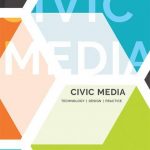I am absolutely thrilled to announce that I will be joining the Berkman Klein Center for Internet & Society at Harvard University as a faculty associate for the 2016-2017 academic year. During this time, I hope to extend my research and connect with new colleagues focused at the intersection of public libraries, digital inclusion, and broadband adoption.
Here’s a snippet from the Berkman Klein Center’s press release:
The class of fellows will primarily work in Cambridge, Massachusetts, alongside Berkman Klein faculty, students, and staff, as a vibrant community of research and practice. Honoring the networked ethos at the heart of the Center, faculty associates and affiliates from institutions the world over will actively participate as well. These relationships, as well as the countless fruitful engagements with alumni, partners, interns, and other colleagues, are fundamental to the Berkman Klein Center’s work and identity, and serve to increase the capacity of the field and generate opportunities for lasting impact.

